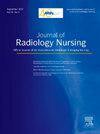Nurses’ Perceptions of Professional Values and Ethics: A Cross-Sectional Study in University Hospital
Q3 Nursing
引用次数: 0
Abstract
Aim
The professional values of nurses serve as the foundation for their interactions with patients, colleagues, and society. This study aims to determine nurses’ perceptions of professional values and the impact of ethics education on their perception of professional values.
Methods
The cross-sectional study included 215 nurses employed at a hospital providing tertiary health care services. Data were collected using the “Personal Information Form” and the “Nurses Professional Values Scale (NPVS).”
Results
Seventy-two-point-one percent of the participants were female, 89.8% received ethics education in the nursing curriculum, and 76.7% received ethics education in their professional life. The total NPVS score of the participants was 98.80 ± 17.15. The NPVS scores of nurses who received ethics education in the nursing curriculum were significantly higher (t = 2.291, p = .031). However, it was found that nurses working in intensive care units had significantly higher NPVS scores than nurses working in outpatient clinics (F = 5.474, p = .003).
Conclusion
The study found that including ethical education in the nursing curriculum had a positive impact on nurses’ perception of professional value. Including effective training on ethics in nursing or professional ethics, professionalism in the profession, and communication between colleagues in nursing education curricula is believed to have a positive impact on the quality of patient care, patient satisfaction, and professional values of nurses in health-care settings where health-care services are provided. Furthermore, it is advisable to conduct additional research on the factors contributing to the low professional values among nurses who work in outpatient clinics that offer outpatient treatment and care.
大学医院护士职业价值观与职业道德认知的横断面研究
目的护士的职业价值观是其与患者、同事和社会互动的基础。本研究旨在了解护士的职业价值观认知,以及伦理教育对护士职业价值观认知的影响。方法横断面研究对象为某三级医疗服务医院的215名护士。数据采用“个人信息表”和“护士职业价值观量表”收集。结果77.1%的受访护士为女性,89.8%的受访护士在护理课程中接受过伦理学教育,76.7%的受访护士在职业生涯中接受过伦理学教育。NPVS总分为98.80±17.15分。在护理课程中接受过伦理教育的护士NPVS得分显著较高(t = 2.291, p = 0.031)。然而,我们发现重症监护室护士的NPVS得分明显高于门诊护士(F = 5.474, p = 0.003)。结论研究发现,在护理课程中纳入伦理教育对护士的专业价值感知有正向影响。在护理教育课程中纳入关于护理伦理或职业道德、专业精神和同事之间沟通的有效培训,据信对提供保健服务的保健机构的病人护理质量、病人满意度和护士的专业价值观具有积极影响。此外,建议对在提供门诊治疗和护理的门诊诊所工作的护士职业价值观低的因素进行进一步的研究。
本文章由计算机程序翻译,如有差异,请以英文原文为准。
求助全文
约1分钟内获得全文
求助全文
来源期刊

Journal of Radiology Nursing
Nursing-Advanced and Specialized Nursing
CiteScore
0.80
自引率
0.00%
发文量
95
审稿时长
57 days
期刊介绍:
The Journal of Radiology Nursing promotes the highest quality patient care in the diagnostic and therapeutic imaging environments. The content is intended to show radiology nurses how to practice with compassion, competence, and commitment, not only to patients but also to the profession of nursing as a whole. The journal goals mirror those of the Association for Radiologic & Imaging Nursing: to provide, promote, maintain , and continuously improve patient care through education, standards, professional growth, and collaboration with other health care provides.
 求助内容:
求助内容: 应助结果提醒方式:
应助结果提醒方式:


